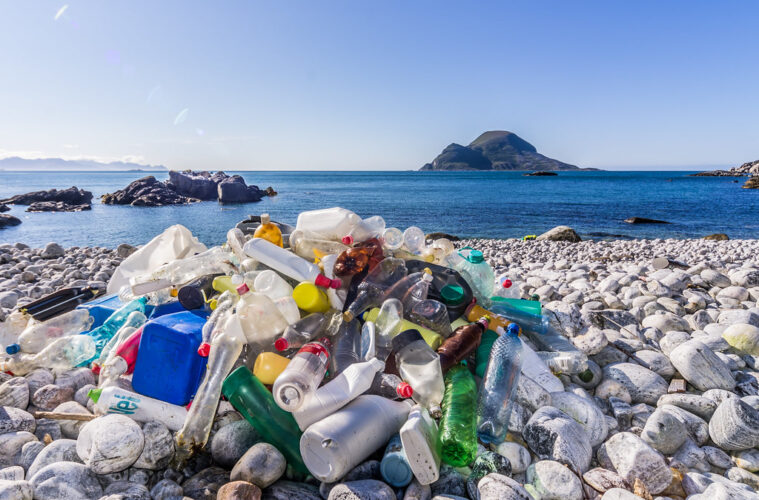The German hemp industry is making strides to cut pollution — or at least figure out how to make a dent in plastic consumption. A German research project led by the renowned Fraunhofer Institute in Germany is utilizing hemp and flax fibers to develop a new genre of sustainable bioplastics. They’re currently exploring applications for plastic automotive parts such as doors, bus parts, and sports equipment, namely snowboards.
The project is called DuroBast, and it uses plant fibers to reinforce plastic composites. According to the press release, the goal is to make new types of moisture-resistant products that can be substituted for other regularly used goods. “…Bast fibers are to be used in the production of thermoplastically formable, natural fiber-reinforced plastics and hereby enable the industrial use of renewable raw materials for a wide range of applications.”
The project has brought together quite the consortium of Germany’s industrial and research heavyweights, including Dräxlmaier, Gustav Gerste, Hübner, the Institute for Textile Technology at RWTH Aachen, the Leibniz Institute for Composite Materials, the Nova Institute, Rhenoflex, silbaerg, Wagenfelder Spinnereien, and Dortmund University.
One of the innovative goals of the DuroBast project is to significantly reduce the moisture absorption of the bast fibers through modification and then process them into yarns and fabrics. Plastic is woven into our clothes with materials like polyester, ultimately rendering them toxic to the environment and us. Replacing plastic-based threads would allow the fashion industry to reduce its footprint.
The press release also explains that DuroBast wants to utilize the “entire hemp plant” rather than just the seeds and flowers, as many in the hemp industry are currently doing. “initial investigations confirm the advantages of the hemp plant in particular. Its climatic requirements allow successful national cultivation and thus offer supply security in times of uncertain global logistics…”
The press release also states that growing hemp has many positive effects on the environment. “Hemp further offers many positive properties from an environmental perspective by successfully concentrating CO2 in large quantities during cultivation. The use of hemp fibers in fiber-reinforced plastics can thus reduce the proportion of fossil plastic components by replacing them with renewable alternatives.”
Currently, most biodegradable plastics come from a compound called polylactic acid (PLA), which is usually derived from corn, Merry Jane reports. Although PLA is biodegradable, compostable, and recyclable, it’s usually much weaker than traditional plastics such as polypropylene or polyurethane. To strengthen biodegradable plastics, manufacturers reinforce the material with plant-based fibers to strengthen PLA-based plastic, which will also biodegrade with the PLA. The drawbacks to using plant fibers and PLA are the manufacturing costs and the use of fertilizers to grow corn, hemp, and flax crops.
Interestingly, DuroBast is using non-biodegradable polypropylene to make its bioplastics. While that may sound weird, polypropylene can be made into a biodegradable material with certain additives. DuroBast is ultimately gathering data to see if its lightweight, durable hemp-polypropylene bioplastics can replace conventional plastics and metals used in vehicles and sports equipment.
The project is launching at a time when the Earth is warning us that she’s overheating. It seems like natural disasters occur on a rolling basis these days. According to the nonprofit Ocean Generation, humans generate more than 420 million metric tons of plastic waste annually. Less than 10% of this waste is recycled! Alas, most of it ends up in our oceans. Now there are floating trash islands of plastic in the ocean created by the cumulative build-up of litter.
Plastic waste that breaks down from sunlight, oxygen, and bacterial exposure becomes microplastics, which end up in our water and eventually in our bodies. While the effects of microplastics are still being studied, some scientists suspect they may cause various types of cancers.
The DuroBast project comes on the heels of One World Products’, a company led by retired NBA star Isiah Thomas, announcement that they are producing hemp-based bioplastics for the car maker Stellantis, the owner of Jeep, Dodge, Chrysler, and Citroën.
Other initiatives around hemp-based materials include making construction supplies from hemp, such as concrete bricks, hemp wood, insulation, or sidings for houses.


